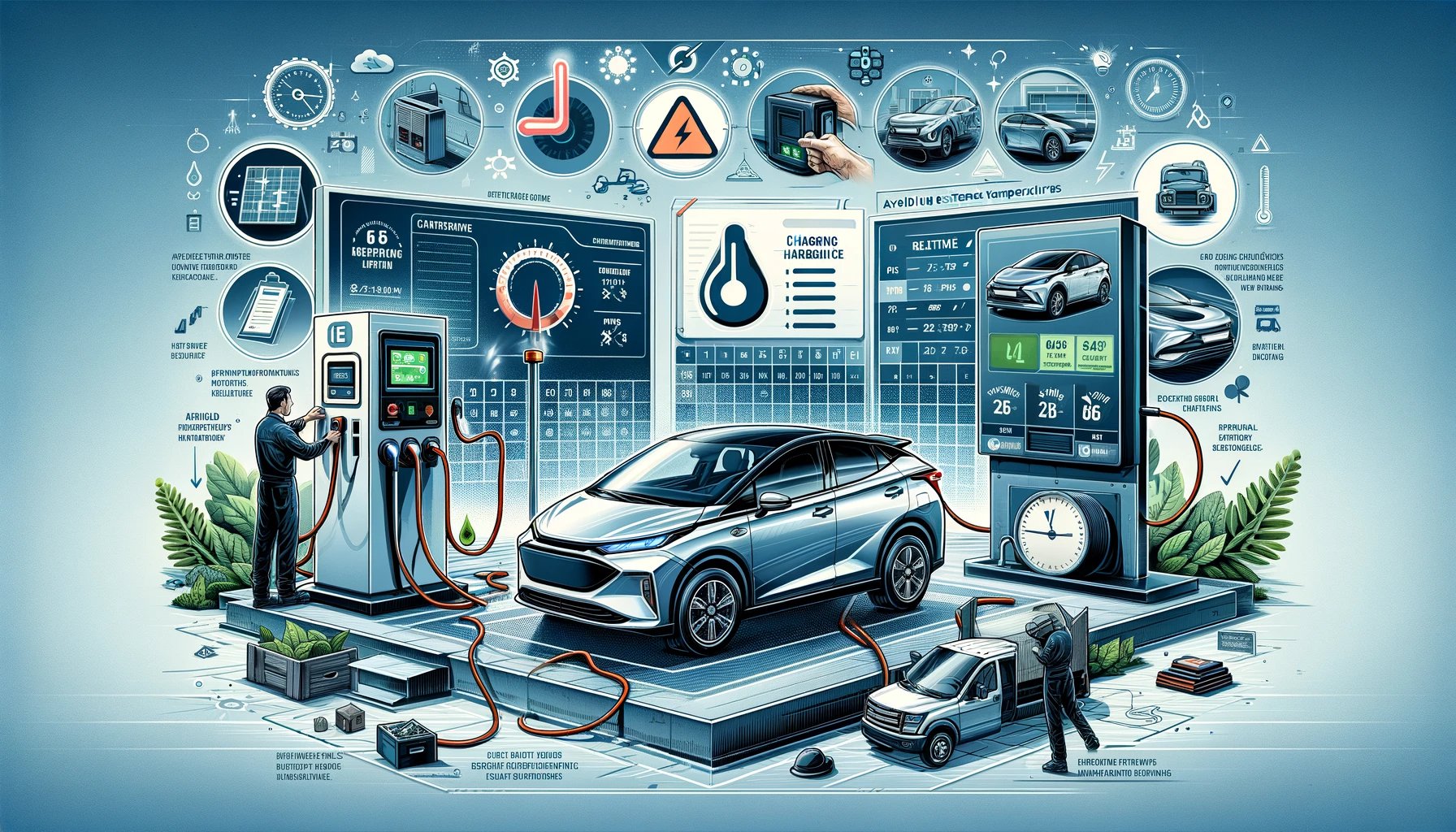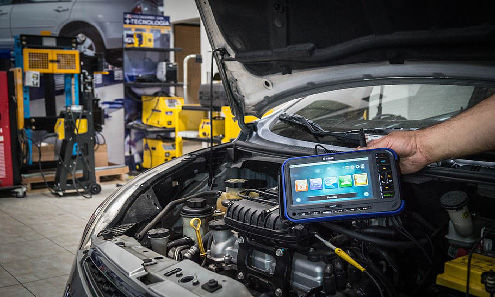
Hybrid cars are changing the way we think about driving! By combining a traditional, efficient internal combustion engine with a helpful electric motor, these vehicles provide great fuel efficiency and lower emissions. The hybrid battery is at the heart of this setup and is responsible for storing and supplying the electrical energy that powers the electric motor. Like all batteries, hybrid batteries have a limited lifespan, so it’s good to be aware of the signs that it might be time for a replacement. Here are seven friendly hints to help you identify when your hybrid battery may need attention!
1. Decreased Fuel Efficiency
Hybrid vehicles are great because they offer improved fuel efficiency! However, if your miles per gallon readings are dropping, it might be a sign that your battery isn’t performing as well as it should. A weakened battery makes your car rely more on its gasoline engine, which can lead to using more fuel.
So, why does this happen?
When your hybrid battery works well, it helps with engine acceleration and makes it easier to drive at low speeds, which keeps gasoline usage down. If the battery strength starts to fade, the engine has to work harder, resulting in higher fuel consumption.
What can you do?
It’s a good idea to monitor your vehicle’s fuel efficiency. If you notice that your battery power is consistently decreasing and you can’t find any other reason, don’t hesitate to contact a professional for a battery check. They’ll help ensure your hybrid stays in tip-top shape!
2. Fluctuating State of Charge
You’ll find the battery charge status displayed right on the dashboard of your hybrid vehicle. Normally, the battery charge level changes gradually during regular driving. However, if you notice any sudden jumps between full and low charge, it’s a good idea to pay attention, as this could mean there’s an issue with your battery.
Understanding the Issue
If you see quick fluctuations in your battery’s charge, it might indicate a problem, often related to aging battery cells or potential failure.
Recommended Action
It’s best to have a certified hybrid vehicle technician take a look at your car. They’ll perform some diagnostic testing to check on your battery’s condition and help determine if it needs replacing. Remember, it’s always better to be safe and keep your vehicle running smoothly!
3. Unusual Engine Noises
Noisy engines can be a bit concerning, especially when they start making unusual sounds because of a struggling battery. When the battery isn’t pulling its weight, the internal combustion engine has to work overtime without help from the electric motor.
Common Sounds to Listen For
1. Knocking and Pinging: If you hear these sounds, it could mean the engine is working harder than usual due to reduced electric support.
2. High-Pitched Whining: This noise might be a sign of trouble with your transmission or electric motor, possibly linked to battery issues.
What to Do Next
If you spot any strange noises coming from your engine, it’s a good idea to get your vehicle checked out by a professional as soon as you can. Addressing these noises early on can help prevent bigger problems down the road!
4. Illuminated Warning Lights
Did you know that modern vehicles come with advanced onboard diagnostic systems? These nifty systems keep you informed about any issues by lighting up warning signals. In hybrid cars, you might see some specific alerts if there’s a problem with the battery.
Key Warning Signs
One sign to look out for is the “Check Hybrid System” light. This light suggests that there may be something going on with the battery. You might also notice the check engine light and other warning indicators lighting up if there are battery-related issues.
What to Do Next
If you see any of these warning lights, don’t panic! It’s best to reach out to a qualified technician as soon as you can. They’ll help you figure out what’s going on and get everything back to normal in no time. Drive safe!
5. Reduced Acceleration and Power
A combination vehicle is designed to use its electric motor for smooth acceleration and great efficiency. However, if the battery is faulty, you might notice changes in the vehicle’s performance.
Here Are Some Signs to Look Out For:
– Your vehicle may take a little longer to reach the speeds you want when accelerating.
– You might feel a drop in power, especially when driving up hills or carrying heavy loads.
What You Can Do
If you notice that your gas pedal doesn’t respond as quickly as it should, or if the engine feels less powerful, it’s a good idea to check the hybrid battery. Inspecting it can help identify any problems and keep your vehicle running smoothly!
6. Increased Emissions
Hybrid vehicles are great for the environment because they produce fewer pollutants! A key factor in how clean they run is the condition of their batteries.
Why This Happens
When a battery starts to wear down, the gasoline engine has to kick in more often and work harder, which can lead to higher emissions.
How We Can Spot Issues
Regular emissions testing helps professionals catch any unusual pollutant levels in vehicles. If you notice any strange smells from the exhaust or if the air quality around you seems off, it might be a sign that something needs attention in your vehicle. Staying on top of these checks helps keep both your car and the environment in good shape!
7. Age and Mileage of the Battery
Hybrid batteries can last a long time, but they don’t last forever! Keeping an eye on your vehicle’s age and mileage can give you great insights into how your battery is doing.
Typical Lifespan
Most hybrid batteries are built to last around 8 to 10 years or about 100,000 to 150,000 miles. That said, things like how you drive, the climate you’re in, and the care you give your vehicle can all affect how long your battery will last.
When to Consider Replacement
–High Mileage: If your ride has made it past 150,000 miles, it’s a good idea to keep a close watch on your battery’s performance.
Advanced Age: Even if you don’t drive much, batteries that are over ten years old might start showing signs of wear.
Proactive Measures
Regular maintenance and check-ups can really help your battery live its best life! Plus, being aware of your battery’s age and how often you use it can help you stay ahead of any potential issues.
What to Do If You Notice These Signs
Hey there! If you’re noticing signs that your hybrid battery might be failing, don’t worry—you can take steps to keep your vehicle running smoothly. Here’s what you can do:
1. Get a Professional Check-Up
It’s a good idea to consult a certified hybrid technician for a thorough diagnostic test. They can check the battery’s health and give you tailored recommendations.
2. Explore Replacement Choices
If you find that you need a replacement, there are some great options:
New Batteries: These come with manufacturer warranties, ensuring you get top-notch performance.
Reconditioned Batteries: These have been refurbished to bring them back to life and can save you some money!
3. Pick a Trusted Supplier
Choosing a reliable supplier for your hybrid battery is really important. In Bangladesh, Car Care BD has a great selection of new Japanese hybrid batteries for various models, like:
Toyota: Aqua, Axio, Prius, Noah, Harrier, Camry
Honda: Civic, Accord, Insight, Vezel
Nissan: X-Trail
For instance, Car Care BD has new hybrid batteries specifically for the Toyota Camry Hybrid, so you can feel confident about quality and reliability.
4. Think About Costs and Warranties
When considering battery replacement, take a moment to think about the costs involved and the warranties available. Investing in a good-quality battery with a solid warranty can give you peace of mind and save you money in the long run.
Take care of your hybrid battery, and your vehicle will thank you!
Tips to Extend the Life of Your Hybrid Battery
Preventative measures can help prolong the lifespan of your hybrid battery:
1. Regular Maintenance
Adhere to the manufacturer’s recommended maintenance schedule. Regular check-ups can identify potential issues before they escalate.
2. Moderate Driving Habits
Avoid aggressive acceleration and heavy braking. Smooth driving reduces stress on the battery and other components.
3. Climate Considerations
Extreme temperatures can affect battery performance. Whenever possible, park.
Connect us with Social Media Platform: Facebook, Instagram, YouTube, Linkedin




